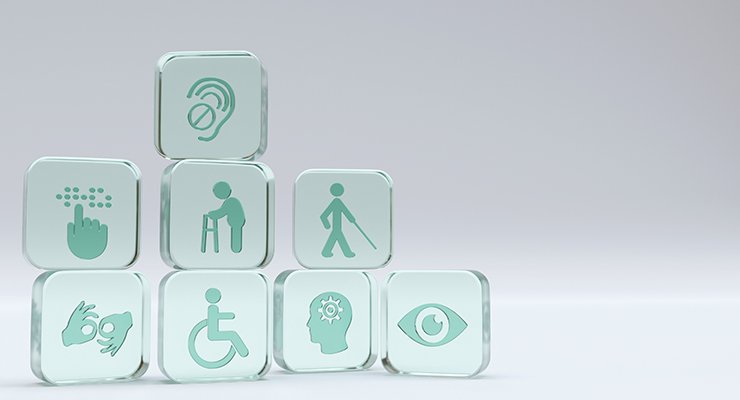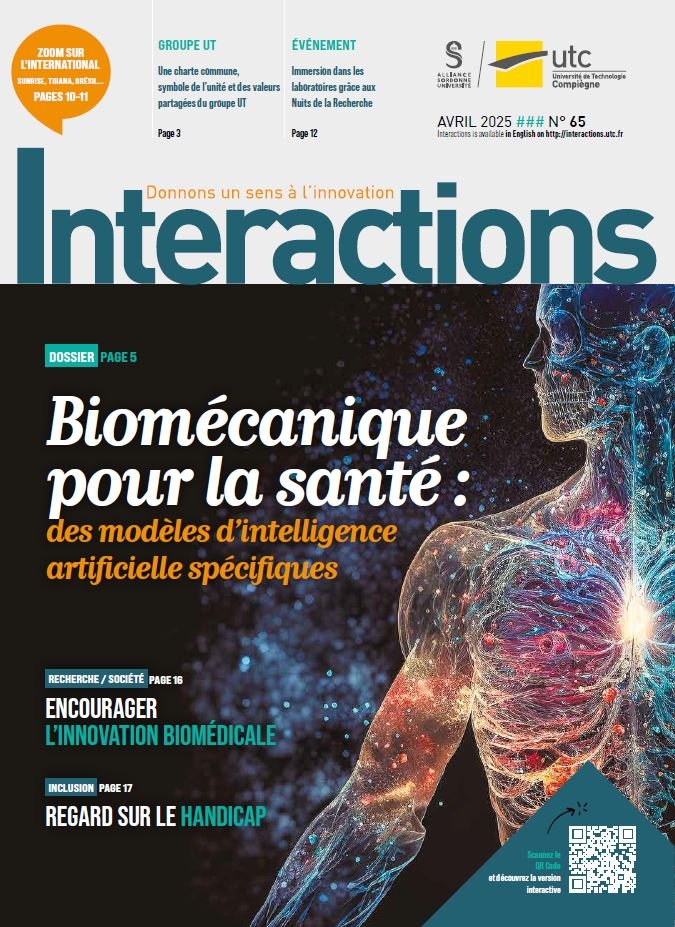Reassessing handicapped persons’ needs

The doctoral school and the research department organised a Research and Disability Awareness Day on December 16, 2024. A day to understand and support disability.
The Research and Disability Awareness Day organised on December 19, 2024 in the Colcombet Lecture Hall at the Transfer Centre was the first event on this theme organised by the doctoral school and the research department. ‘It’s a first event, and there will be more to come. We welcomed colleagues from UTC and Sorbonne University. Their presentations focused on research themes that are themselves related to disability. For example, there was a talk entitled ‘Hands-free crutches and reinforcement learning for walking exoskeletons’ by Nicolas Perrin-Guilbert, from the ISIR laboratory at Sorbonne University and a talk by Irène Labbe-Lavigne, a doctoral student at UTC’s Costech laboratory, on understanding disability through the prism of technology’, explains Frédéric Lamarque, Director of Research at UTC. Anne Guénand, a lecturer-cum-research scientist at the Costech laboratory, also gave a presentation on the Bip Pop platform for collaborative mobility and her work as a researcher into new forms of civic engagement, in the firm belief that new forms of civic engagement are emerging today that will enable us to reconfigure the way we live together. After several years of development and action research in partnership with UTC and the Godin Institute, and after several experiments, the Bip Pop solution arrived in 2016. Today, we are present throughout France, working with local authorities wishing to commit to intergenerational living together and with organisations working with frail people,’ she points out. The inclusive design of this scheme enables us to respond to social issues such as mobility for people with disabilities.
AccessSciencesDV : training young people in the sciences
Visually impaired since childhood, astrophysicist Ludovic Petitdemange from Sorbonne University’s Lerma laboratory came to present “AccesSciencesDV”. Also a high-level disabled athlete, he is working to make astronomy accessible to all, particularly the visually impaired, with the aim of demonstrating that visual impairment and scientific research are not incompatible. There are a lot of barriers to writing, reading, diagrams and calculators for the visually impaired. There is no miracle tools or software packages. The needs are immense, with 5 000 visually impaired people in inclusive education and universities having to adapt. ‘Admittedly, new tools are coming on stream, based on AI and the emergence of new science courses based on coding, encryption and engineering science. Few visually impaired people go on to study science and have access to science-related careers,’ points out Ludovic Petitdemange. Hence the idea of developing an independent, collaborative web platform for training in the sciences and in compensatory tools. It is also aimed at careers and teachers, and will help to stimulate the French community on these issues.
Researchers speak out on disability support
During the round table on the theme of ‘Supporting a disabled person’, with Marie-Christine Ho Ba Tho, a lecturer-cum-research scientist and member of the UTC-CNRS-BMBI laboratory who is particularly sensitive to the issue of disability and Vincent Coudé du Foresto, an astronomer at LESIA-Observatoire de Paris and head of the unit, we heard about aims to raising awareness and knowing how to behave when in the presence of colleagues with a disability, to ensure better integration. ‘My responsibility is to put in place a team where everyone can work properly within the vision set by the laboratory. We are very keen to work with people with disabilities. It allows us to test the boundaries and, for a research scientist, it’s very stimulating’, says Vincent Coudé du Foresto. With the RQTH (Recognition of Qualification as a Disabled Worker) as an employment law tool, when case-declared, we can take action. So help us to help you. Finally, during the round table on the theme of ‘being a researcher with a disability’, the four speakers shared their experiences, their victories and their challenges, and as Vincent Zalc, a doctoral student at the BMBI laboratory, explained: ‘The problem of disability, in my case, is a physical disability and, as long as you have the intellectual capacity to pursue your studies and you are properly oriented, the course itself can be taken. Then there’s the problem of the accessibility of the premises, note-taking and the lack of contact with others when you’re isolated. You often have to ask for help, and from that point of view it’s psychologically hard. But I have to say that I’ve had a lot of help in my laboratory. Benjamin Lussier, from the Heudiasyc laboratory, François Gomez, from the TIMR laboratory, and Ludovic Petidemange, from the LERMA laboratory at Sorbonne University, were also able to tell their stories. Now I can say that I suffer from an autistic spectrum disorder,’ concludes Benjamin Lussier. Noise, bright lights and tiredness all impact me. On the other hand, human contact, integration and collaborative work are all vital for me!
KD




